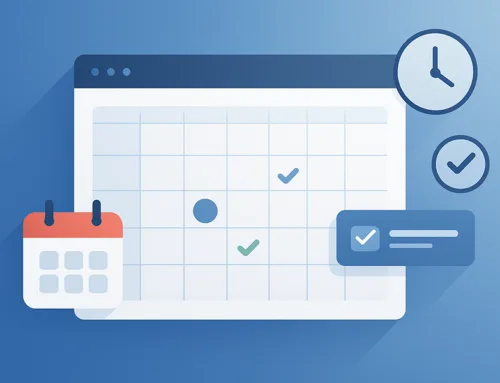If you are thinking of starting a new online store or just expanding the reach of your traditional store by going digital then you must be worried about web development costs. E-commerce startups can neither afford to overspend their resources nor come short of offering customers a great digital or online shopping experience.
When stores started opening online, the entrepreneurs have become more creative and the customers more demanding. Because of the cut-throat competition, business owners have to be more creative in marketing their sites and products. As far as the customers go, they don’t want anything less than the best experience, may it be surfing or shopping. So, it’s obvious that you might be worried about the cost of developing a website.
But fret not, we are here to guide you. Here, in this article, we will give you a glimpse or say a rough estimate of what your eCommerce web app development costs might look like. So let’s get started.
eCommerce website development costs
Hosting costs
The first thing you have to do is choose a hosting provider. Many options are available in the market. But here, we will talk about the top three hosting service providers.
Dreamhost is one of the best places to start your ecommerce business if you’re looking for a reliable hosting service with plenty of features and low prices. They provide unlimited disk space, email accounts, and domain names for free and charge only $1.99 per month for web hosting (no matter how many domains or websites you have).
Bluehost is another good option that includes all of the services mentioned above plus more than 150 additional features including SSL certificates, subdomains, virtual private servers (VPSs), dedicated IPs, API access, and more. With the charge of just $6.95 per month, Bluehost is one of the most budget-friendly hosting service providers out there.
If you want to use a platform that provides more than just hosting services then Hostgator might be an ideal choice for you. Unlike its competitors here it offers its e-commerce solution which includes everything from promotions management to customer relationship management (CRM) tools – as well as its full-featured WordPress themes that can be purchased directly from its website or through its partner theme store ThemeForest.
Payment processing costs
Payment processing costs vary depending on your payment processor and your business type. In general, credit card processing fees can be anywhere from 2% to 3%, while PayPal charges between 2% and 3%.
If you’re trying to pay less than $1,000 per month for your ecommerce website, then you’re probably looking at a credit card processor. For every transaction you make, these credit card processors will charge you some fee. This percentage varies based on the type of business that is being processed for and the size of the business. For example, if you are a small retailer who sells only one product online and makes about $100 in revenue each month, then your credit card processor fee will likely be around 3%.
For businesses with higher volumes (more than $100k in sales), it may make more sense to go with a merchant account instead of using a credit card processor. Merchant accounts offer lower rates than credit card processors but also require more work from your end because they handle all the back-end accounting tasks like tracking sales tax or shipping costs. It’s important to note that there are some merchant accounts out there which have no monthly fees so don’t rule these out just yet!
Design costs
Designing a website is a crucial step in the process of building an ecommerce store, but it doesn’t have to be expensive. A large variety of free design templates is available online that you can use to design your new website with little customization as per your requirements. If you have an existing logo or other design elements, these can be used as well.
If you want to go beyond the basics, there are plenty of tools available that can help you design your site in minutes and save you hours of work later on. However, if you aren’t very technical or don’t want to learn how to use them, it may be best to hire someone who knows what they’re doing.
Add-ons and extensions cost
Each add-on or extension you add to your website will cost you. It’s not just the fees associated with the software, but also any fees associated with designing and hosting your storefront.
There are a few add-ons and extensions that can make your ecommerce website more efficient and help you reach new customers.
The first thing you’ll want to do is check out the add-ons and extensions offered by your ecommerce platform provider. If they are offering any, maybe they have collaborated with some third party for it, look around and you are bound to find some suitable add-ons and extensions for your website. And most of these tools are nowadays easily integrated so you don’t have to worry about it either.
If you don’t see anything that fits your needs, contact your provider and ask if they have any recommendations or suggestions. The cost of your ecommerce website can vary depending on several factors, including the complexity and functionality of your product or service.
Total development costs of an eCommerce website
The total development cost of an eCommerce website is dependent on many factors, including the size and scope of the project, the features you want to include, and how much time you want to spend developing it.
The average cost for a small ecommerce site is $15,000 to $20,000. This figure can range from under $5,000 if you are only building a simple online store with limited inventory and no customizations to over $100,000 if your ecommerce business has a complex backend system and multiple fulfillment centers across the country.
The following are some of the costs associated with building an eCommerce website:
- Domain name registration: $10 – $100 per year
- Hosting fees: $10 – $100 per month for shared hosting and $50 – $500 per month for dedicated hosting
- Web design and development: Varies based on complexity, from around $400 – $3,000 per month
- Search engine optimization (SEO): Varies based on complexity, from around $200 – $2,000 per month
If you’re looking at building an entire ecommerce solution from scratch, you’ll need to budget at least $50,000 for design, development, and hosting costs.
Conclusion
You can launch an eCommerce website for less than $1,000 but mostly it depends on your business requirements and the features you add to your website accordingly. There are many facets of the online store, which one you choose for your business matters along with what kind of services you subscribe to for it. Your cost will vary according to the types of services and platforms you choose to use for your business.
Starting an online business can provide you with ample growth opportunities, all you need to do is make the right and informed decisions and take some calculated risks along the way.





